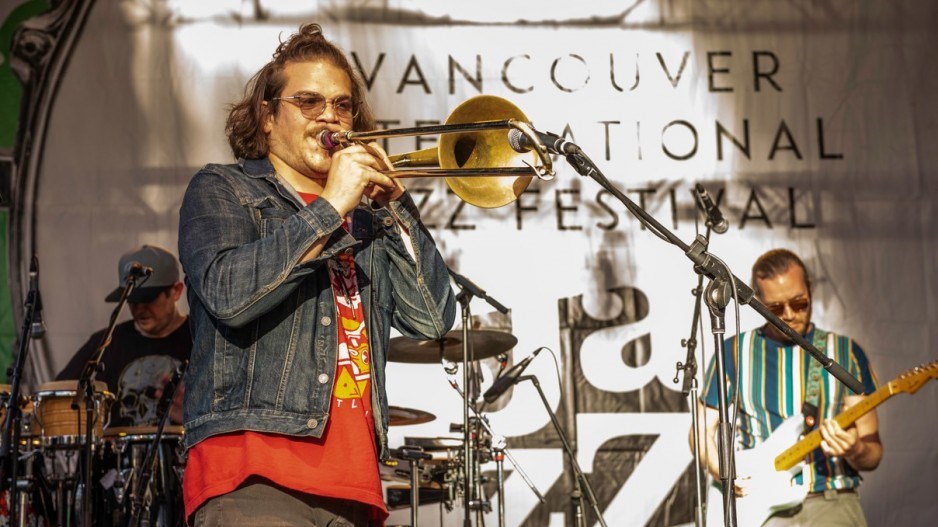The Coastal Jazz and Blues Society is launching its annual Vancouver International Jazz Festival (VIJF) tomorrow in what will be the first festival in decades without a title sponsor.
"I can't share if we're in talks with anybody," Coastal Jazz' executive director Nina Horvath told BIV this afternoon. "It's a slow process to find a title sponsor. Typical wisdom says it takes 12 to 18 months to develop that relationship, and for various reasons we were only able to start seriously looking in about September of last year so we're really only about eight months in."
She would not disclose exact figures for how much her 10-day festival's sponsors provide, including what would be expected of a title sponsor.
The British Columbia Lottery Corp. and Canadian Mortgage and Housing Corp. have stepped forward as the festival's biggest corporate backers. Other support comes from organizations such as the Downtown Vancouver Business Improvement Association, Anthem Properties and Toyota, she said.
Longtime title sponsor TD Bank last year gave the VIJF notice, but little rationale for why 2022 would be the final year that it would provide substantial financing for the VIJF, Horvath said.
"We don't have a really specific answer from them in terms of exact reasons why," she said. "They had a very positive experience working with us but they dropped us and another one of the jazz festivals last year so I think it was just that they're choosing to put their money in other spots."
The festival launched in 1985 and has taken place every year except for 2020, when the COVID-19 pandemic forced the cancellation. In 2021, Coastal Jazz put on a hybrid festival that had a few in-person paid events.
Coastal Jazz operates year-round with eight employees but about 90 per cent of its revenue and expenses is tied to putting on its annual summer VIJF.
Its annual budget this year is a little more than $2 million, which is less than last year's approximately $2.5 million. With approximately 140 shows, the festival size is also smaller than last year, when there were more than 200 shows, Horvath said.
Pre-pandemic, Coastal Jazz tended to have budgets in the $4-million to $4.5-million range. In 2021, when the festival operated largely online, the budget was about $1.6 million, Horvath said.
Most of that budget is spent to produce shows. More than 50 free concerts will take place at locations such as the north plaza of the Vancouver Art Gallery, and at Granville Island. The VIJF also produces shows at venues such as the Queen Elizabeth Theatre, Vancouver Playhouse and the Granville Island Revue Stage.
The free concerts involve costs such as setting up stages and security. The shows at venues also come with costs because Coastal Jazz contracts the artists and pays the venue rental fees.
More than half of this year's revenue is expected to come from municipal, provincial and federal government grants and funding. Corporate sponsorship will provide about 15 per cent of the budget this year, down from around 35 per cent last year, Horvath said.
Merchandise sales and food and beverage sales help the festival function.
It is ticket sales, however, that are key to helping Coastal Jazz in its attempt to break even. The organization is selling those tickets directly on its website, instead of by using Ticketmaster because that method means that it will not have to pay Ticketmaster fees. Ticket buyers, as well, get to share in the savings because they will also not have to pay the high fees that Ticketmaster normally charges on all sales, Horvath said.
The festival aims to make music accessible to the public which is why it has so many free shows and why it aims to keep ticketed shows affordable, she said.
"Ticket sales are definitely going better than last year but they're still not to the level of pre-pandemic," Horvath said. "We're relatively happy with where things are progressing."




